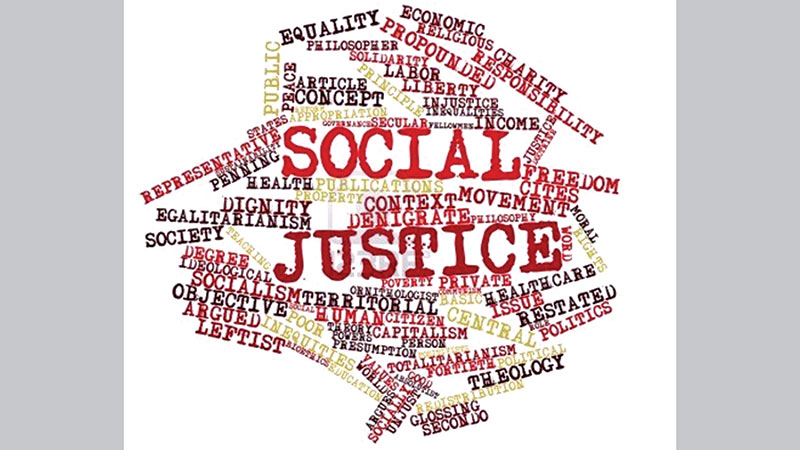Social Justice and Human Rights

In our pursuit of a just and equitable society, the concepts of social justice and human rights play a central role. They are fundamental principles that guide our understanding of fairness, equality, and dignity for all individuals, irrespective of their backgrounds or circumstances. Social justice encompasses the collective efforts to address systemic injustices and promote equality, while human rights focus on the inherent dignity and entitlements of every person.
Social justice refers to the fair distribution of resources, opportunities, and benefits within a society. It recognizes that certain groups may face discrimination, marginalization, or disadvantage due to factors such as race, gender, socioeconomic status, or disability. The pursuit of social justice involves identifying and challenging these structural barriers to create a more inclusive and egalitarian society.
Human rights, on the other hand, are the rights and freedoms inherent to all individuals by virtue of their humanity. They are universal, indivisible, and inalienable. Human rights encompass civil, political, economic, social, and cultural rights. These rights include, but are not limited to, the right to life, liberty, equality, non-discrimination, freedom of expression, education, and access to healthcare.
The concept of social justice is deeply intertwined with the promotion and protection of human rights. To achieve social justice, it is necessary to ensure that human rights are upheld and respected for all members of society. This requires not only addressing systemic inequalities but also challenging discriminatory practices, empowering marginalized communities, and promoting inclusivity at all levels.
One of the key aspects of social justice and human rights is the recognition and elimination of structural and systemic injustices. These injustices can manifest in various forms, such as racial discrimination, gender inequality, economic disparities, or violations of the rights of marginalized groups. Addressing these systemic issues requires a comprehensive and intersectional approach that takes into account the overlapping dimensions of discrimination and disadvantage.
Promoting social justice and human rights also entails creating an environment where equal opportunities are available to all individuals, regardless of their background. This means ensuring access to quality education, healthcare, employment, housing, and legal protection. It also involves fostering an inclusive and diverse society that values and celebrates the contributions of every individual.
Achieving social justice and protecting human rights requires the involvement and collaboration of various actors, including governments, civil society organizations, non-governmental organizations, and individuals. These stakeholders play a crucial role in advocating for policy changes, raising awareness, and holding accountable those who violate human rights or perpetuate injustice.
Legal frameworks and institutions play a crucial role in advancing social justice and protecting human rights. They provide the foundation for enforcing and safeguarding the rights and freedoms of individuals. Courts, tribunals, and human rights commissions adjudicate cases, interpret laws, and provide remedies for victims of rights violations. Legislative bodies enact laws and regulations to protect human rights and address systemic inequalities.
Moreover, advocacy and public awareness campaigns play a vital role in promoting social justice and human rights. These initiatives aim to educate the public, challenge stereotypes and prejudices, and mobilize support for policy changes and initiatives that promote equality and fairness. By amplifying the voices of marginalized communities and raising awareness about their experiences, advocates contribute to building a more just and inclusive society.
In recent years, there have been significant advancements in the recognition and protection of social justice and human rights issues. Movements advocating for gender equality, racial justice, LGBTQ+ rights, disability rights, and indigenous rights have gained traction worldwide. These movements have helped bring attention to systemic inequalities, challenge discriminatory practices, and promote policy changes that advance social justice.
However, the work towards achieving social justice and protecting human rights is an ongoing process. Challenges persist, and new issues continue to emerge. It is essential to remain vigilant, address evolving forms of discrimination and inequality, and strive for a society where social justice and human rights are fully realized.
Conclusion
Social justice and human rights are interconnected concepts that drive our pursuit of a more equitable and inclusive society. They require us to address systemic injustices, promote equality of opportunity, and protect the inherent dignity and entitlements of every individual. Through advocacy, legal frameworks, and public awareness, we can work towards creating a world where social justice and human rights are upheld, and everyone can live a life of dignity and fulfillment.
